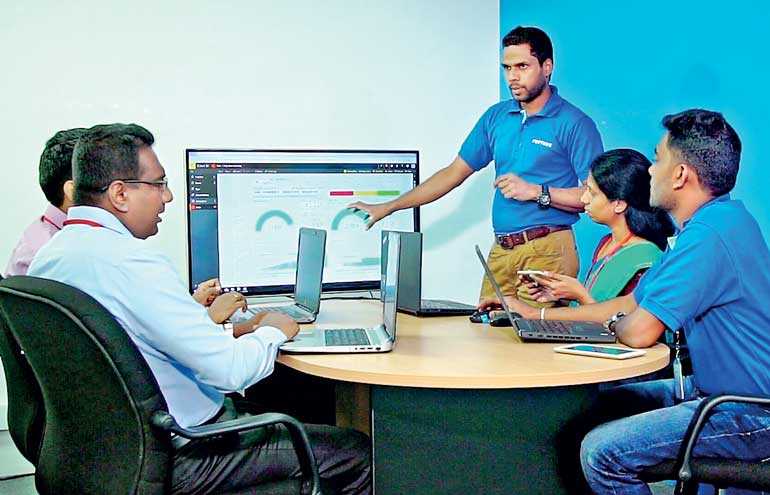Monday Feb 16, 2026
Monday Feb 16, 2026
Tuesday, 2 July 2019 00:00 - - {{hitsCtrl.values.hits}}

Today, the responsibilities of marketing go far beyond branding with CEOs relying on CMOs to be the interconnecting layer that joins the dots between each part of the business—from sales to finance through to product and customer experience.
This shift is being driven by the emergence of new digital platforms and technologies with Asia being home to four billion internet users and five billion mobile users. A high proportion of these users are tech-savvy and trend conscious. The increase in disposable income in the region is also having a positive impact on the market’s e-commerce sales, which is expected to surpass a staggering $ 1 trillion by 2021.
Empowering the CMO in the boardroom
CMOs are in the optimal position to spearhead organisations’ customer-centric strategies and initiatives and position themselves as the “voice of the consumer” in the boardroom.
With cloud-based CRM solutions and business analytics, CMOs will be able to access data from multiple customer touchpoints and gain insights about consumer needs and behaviours. These findings can be used to fuel innovation, personalise services, improve products, or even predict consumer demand.
Brick-and-mortar businesses are utilising technologies to transform their business models and customer engagement approaches in Asia Pacific. For example, Digital Ventures—a FinTech subsidiary of Siam Commercial Bank in Thailand—combined the world-renowned charms of the famous Chatuchak market in Bangkok with the digital conveniences of online shopping through the Chatuchak Guide app. Visitors to the market can search the app’s cloud-driven database to create their Chatuchak wish list, leave reviews of their favourite merchants, and conveniently find their way inside the maze-like footpaths with the help of their phone’s navigation.
A wealth of off-the-shelf cloud solutions are now available to be purchased as infrastructure-as-a-service (IaaS), platform-as-a-service (PaaS) or software-as-a-service (SaaS).
Cotton Collection, a chain of clothing outlets in Sri Lanka, is leveraging cloud services, big data and analytics to strategically tailor consumer experience. Cotton Collection has shown strong adoption of CRM to synchronise customer service and support with vital sales and logistical data.
For Sonee Sports, a small retail chain in the Maldives, employees use the same system and data to answer stock questions from in-store shoppers. If customers have product questions, they can post them on the company’s Facebook or Twitter pages, and customer service representatives can answer immediately using data from its CRM platform.
As consumers’ digital activities continue to increase in Southeast Asia, it’s generating a tremendous and diverse amount of data. With the right analytics tools, this data is a rich source of insights for CMOs, providing them with a more accurate profile of their customers, including brand resonance, demographics, preferences, and purchasing patterns.
This empowers CMOs, letting them be more effective when engaging with customers while also providing their organisations with valuable insights into customer trends and feedback, which can then be applied to improve products and services.
Importance of building modern workplaces
Organisations must seek out new ways to engage customers and employees and establish more meaningful relationships in place of historically transactional ones. With new products, software, and practices being created and implemented daily, businesses need to adapt in order to remain innovative and competitive. True modernisation is having a fully collaborative workplace that’s integrated with technology in order to boost productivity.
For example, heavily regulated businesses like banks can find it hard to differentiate on products and services. To tackle these challenges, Myanmar-based Yoma Bank has leaped ahead in the financial service industry by turning to Office 365, a cloud collaboration for better communication and connectivity, delivering the best experience for both employees and customers.
From electronic wallets to mobile purchase recommendations, Nations Trust Bank of Sri Lanka balances innovative offerings with its reputation as a trusted advisor to customers. In early 2017, the bank’s email program licenses were set to expire, and it chose Microsoft 365 cloud services as a replacement. The deciding factor? Microsoft FastTrack support, included with Office 365, for onboarding, migration, and adoption, which helped the bank meets its tight migration deadline.
Even Cambodia’s leading mobile telecommunications company, Smart Axiata has implemented Office 365 to increase company agility and foster a digitally savvy and collaborative work environment. As Smart continues to use Office 365, they hope to foster more productivity and efficiency within their internal operations to boost their overall customer relationships.
The power of the consumer voice
For consumers, the digital movement has enabled them to seize the opportunity when it comes to when, where, and how they want to engage with an organisation. Consumers are now in the driving seat. By voicing their support or criticism for specific brands or initiatives on digital channels, they are helping shape organisational services, actions, and values.
Consumers are also gaining influence and power over how others perceive brands and buy their products. According to a recent study, more than half of the consumers (55%) today have made a purchase from a social media channel. Consumers have also indicated that they are most likely to act on user-generated recommendations when shopping online.
Customer-centricity as a key differentiator
As the voice of consumer becomes increasingly prominent and influential, more and more organisations today are shifting their business strategies from an inside-out to an outside-in approach, where customer value creation and customer experiences are seen as the keys to success.
In Sri Lanka, Ceylon Biscuits Ltd. saw an opportunity in the market when they decided to resolve the cumbersome paper-based invoicing customer experience. The confectionery manufacturer digitally transformed this process, providing their employees with a quick, easy-to-use invoicing system by way of an in-house mobile app utilising Power BI.
Large volumes of invoice data meant that the manufacturer could now analyse, visualise and extract deep business insights in real time for top management. Thanks to Power BI, the company can leverage the computational power of Azure cloud services through a seamless and more effective invoicing process. This improvement in customer experience also helped the manufacturer to engender stronger brand loyalty amongst its existing customers and provided a strong differentiator against its competitors.
By bringing their customer knowledge to the table, CMOs can help organisations to more accurately map out their entire customer journey. Collaborations with other functions will be crucial in ensuring that all processes and touchpoints are seamless for the customer. By providing quality data and insights that inform the organisations’ strategic decisions, CMOs can give their organisations the competitive advantage they need to survive and thrive in Asia Pacific’s hypercompetitive, constantly evolving digital landscape.
(The writer is Marketing and Operation Director South East Asia New Markets, Microsoft.)